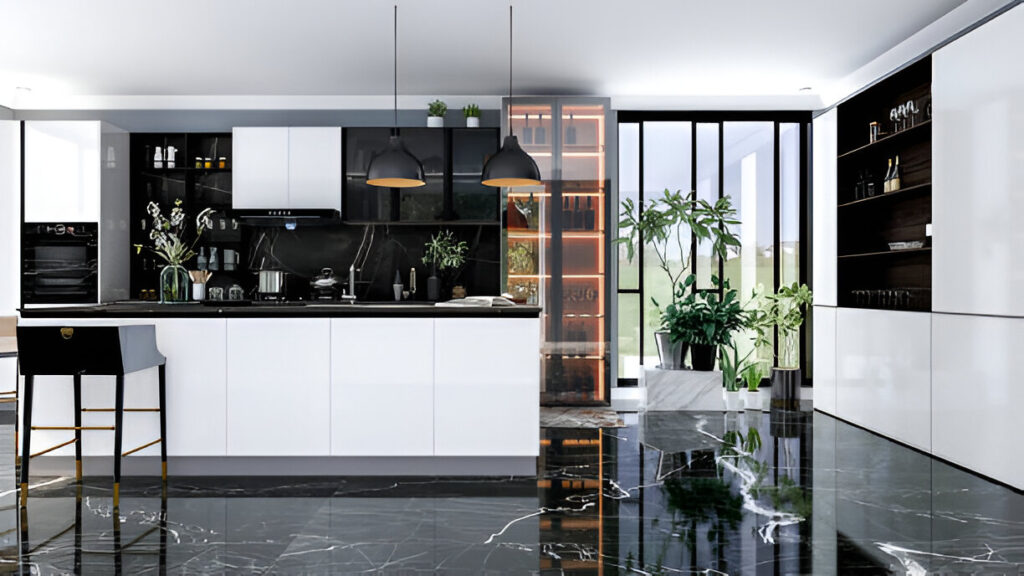Home improvement can transform your living space, making it more comfortable, functional, and beautiful. However, not all renovations are created equal. The key to long-lasting and impactful changes is focusing on quality home improvement. This guide will explore the importance of quality, how to plan and execute top-tier home improvement projects, and how these changes can boost both your daily life and your home’s value.
Why Quality Matters in Home Improvement
Quality home improvement is more than just making your house look good. It’s about investing in materials, designs, and craftsmanship that will last over time. High-quality home improvement has several significant benefits:
- Durability: Quality materials and skilled labor ensure that renovations withstand wear and tear, reducing the need for frequent repairs.
- Increased Property Value: Well-done renovations can increase the market value of your home. Buyers are more willing to pay for a house that has solid, durable upgrades.
- Enhanced Comfort: Quality improvements can improve your home’s insulation, efficiency, and functionality, making it more comfortable to live in.
- Cost Efficiency: While it may cost more initially, high-quality materials and construction save money in the long run by avoiding costly repairs and replacements.
Poor-quality work, on the other hand, can lead to structural issues, leaks, or breakdowns that require costly fixes.
Key Areas for Quality Home Improvement
When considering where to invest in quality luxury home renovation, some areas of the home provide the most impact in terms of functionality and return on investment. Here are the most important areas to focus on:
Kitchen Upgrades
The kitchen is one of the most important rooms in your home, often called the heart of the house. Investing in high-quality materials and modern designs for your kitchen can elevate its function and aesthetic appeal. Replacing outdated countertops with durable options like granite or quartz, installing energy-efficient appliances, and upgrading cabinets can dramatically improve both the usability and look of the kitchen.
Quality lighting also plays a crucial role in a functional kitchen. Opt for well-placed task lighting or energy-efficient LED lights to brighten up work areas and add ambiance.
Bathroom Remodeling
Another key area for quality home improvement is the bathroom. Remodeling a bathroom with high-quality fixtures such as walk-in showers, durable flooring (like ceramic or stone tiles), and water-saving toilets can provide both luxury and functionality. Premium materials not only look better, but they also stand up to moisture and heavy use.
Replacing older plumbing fixtures with water-efficient options can save money on water bills and make your bathroom more eco-friendly. Additionally, quality materials in bathrooms, such as stone countertops and durable vanities, ensure longevity.
Living Room Enhancements
The living room is where your family spends a lot of time, making it another excellent area to focus on for home improvements. Investing in durable flooring, such as hardwood or high-quality laminate, can enhance the room’s appearance while standing up to heavy traffic. Built-in storage solutions, such as custom bookshelves or entertainment centers, can also add both style and practicality to the space.
Upgrading your living room’s lighting, whether through modern fixtures or smart lighting systems, can further enhance the room’s ambiance and functionality. High-quality furniture and finishes contribute to the room’s aesthetic while ensuring longevity.
Exterior Improvements
The exterior of your home plays a crucial role in curb appeal and protects your home from the elements. Quality home improvement on the exterior includes upgrading your roof, replacing old siding, and installing energy-efficient windows. These improvements not only make your home more attractive but also improve insulation and energy efficiency.
A new roof with durable materials like metal or architectural shingles provides protection for decades. High-quality siding options, such as fiber cement, offer superior durability and insulation, while new windows can significantly lower your energy bills by preventing drafts.
Additionally, landscaping improvements, such as installing outdoor lighting or irrigation systems, can enhance the beauty and functionality of your yard while increasing property value.
Working with Professional Contractors
While DIY home improvements are popular, achieving high-quality results often requires the expertise of professional contractors. Hiring professionals ensures that the work is done correctly and to code, preventing potential issues down the road. Contractors have the tools, skills, and experience necessary for complex projects that involve plumbing, electrical, or structural work.
When choosing a contractor for your home improvement project:
- Check their credentials: Make sure they are licensed, insured, and bonded. This protects you from liability in case of accidents.
- Review their portfolio: Look at past projects to gauge their skill level and experience with your type of renovation.
- Ask for references: Speak to previous clients to get a sense of their professionalism and the quality of their work.
- Get a detailed quote: Request a clear and itemized estimate that outlines all costs associated with the project.
By carefully selecting a contractor, you ensure that your home improvement project is handled by experienced professionals who can deliver high-quality results.
Budgeting for Quality Home Improvement
Home improvement projects, especially those focused on quality, require a well-thought-out budget. Investing in quality materials and labor may cost more upfront, but it pays off in the long run. Here are a few budgeting tips:
- Prioritize your needs: Identify the most critical areas of your home that need improvement and allocate your budget accordingly.
- Plan for contingencies: Always set aside 10-15% of your budget for unexpected expenses that can arise during construction or renovation.
- Get multiple quotes: For any professional work, obtain estimates from several contractors. This will give you a sense of the going rate and help you choose a professional that fits your budget while still delivering quality results.
- Don’t cut corners: While it’s tempting to choose cheaper materials or labor, this can result in future problems that cost more to fix than you save upfront. Always prioritize quality over short-term savings.
Tips for Ensuring High-Quality Home Improvements
To achieve the best results in your home improvement project, consider the following tips:
- Do your research: Before choosing materials or hiring a contractor, spend time researching your options. This will help you make informed decisions that are best for your home.
- Plan thoroughly: A well-thought-out plan ensures fewer surprises during the renovation process and helps stay on track with your budget.
- Focus on materials: Choose materials that not only look good but are also durable and easy to maintain. For example, hardwood flooring and solid countertops offer longevity and require less upkeep.
- Hire experienced contractors: Skilled professionals can bring your vision to life while ensuring the highest standards of craftsmanship.
- Inspect the work: During and after the project, make sure to inspect the work to ensure that everything meets your expectations and quality standards.

Eco-Friendly and Energy-Efficient Home Improvements
Incorporating eco-friendly and energy-efficient improvements into your home not only benefits the environment but also saves you money in the long run. Sustainable home improvements include the use of renewable energy sources, energy-efficient appliances, and water-saving systems.
Installing solar panels is one of the most impactful energy-saving improvements you can make. While the upfront cost may be high, the long-term savings on electricity bills are substantial. Similarly, upgrading to energy-efficient windows, doors, and insulation helps reduce heating and cooling costs, as well as improve indoor comfort.
Water conservation is another important aspect of eco-friendly home improvement. Installing low-flow faucets, showerheads, and toilets reduces water consumption without sacrificing performance. Additionally, upgrading your home’s irrigation system can help you maintain a healthy landscape while using less water.
How Home Improvement Increases Property Value
One of the most significant benefits of investing in quality home improvement is the boost it provides to your home’s market value. A well-renovated home is more attractive to buyers, and certain upgrades yield higher returns than others.
For example, kitchen remodels often provide one of the highest returns on investment. Upgrading to modern, energy-efficient appliances, high-quality countertops, and custom cabinets makes your kitchen more functional and visually appealing, which is a strong selling point.
Bathroom remodels also offer a high return on investment, particularly when luxury touches such as walk-in showers, high-end fixtures, and durable tiles are included. Buyers are often willing to pay more for homes with updated, stylish bathrooms.
In addition to interior upgrades, exterior improvements such as new roofing, siding, and energy-efficient windows can dramatically increase your home’s curb appeal, making it more attractive to potential buyers and increasing its overall value.
Maintaining Quality After Home Improvements
Once your home improvement project is completed, it’s important to maintain the quality of the work to ensure its longevity. Regular cleaning, maintenance, and inspections will keep your renovations looking fresh and functional.
For example, flooring should be cleaned regularly, and any damage should be repaired promptly. In kitchens and bathrooms, periodic checks for leaks or plumbing issues can prevent major problems from developing. Exterior improvements like roofing and siding should also be inspected annually to catch any signs of wear or damage early.
By staying on top of maintenance, you can protect your investment and enjoy the benefits of your quality home improvements for years to come.
FAQs
What is the best way to ensure high-quality results in home improvement projects?
The best way to ensure high-quality results is by using durable materials, hiring skilled professionals, and thoroughly planning your project from start to finish.
Is it worth paying extra for energy-efficient home improvements?
Yes, energy-efficient home improvements save money in the long term by reducing utility bills. They also increase the comfort of your home and its appeal to potential buyers.
How can I find a reliable contractor for my home improvement project?
Look for licensed, insured, and bonded contractors. Check reviews, ask for recommendations, and get multiple quotes before making a decision.
What are some simple ways to improve my home’s energy efficiency?
Upgrading insulation, installing energy-efficient windows and doors, and switching to energy-saving appliances are simple but effective ways to improve energy efficiency.
Should I DIY or hire a professional for my home improvement project?
For small, straightforward tasks, DIY may be a good option. However, for larger projects that involve electrical, plumbing, or structural work, it’s best to hire a professional.

